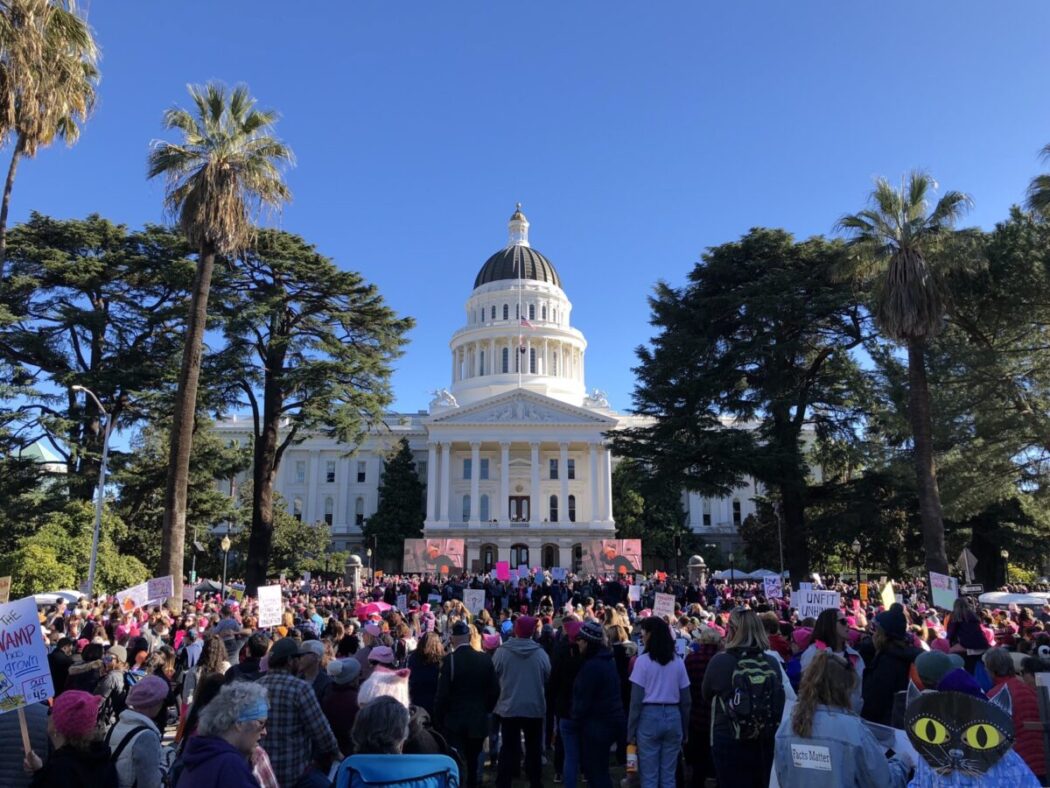LA County + California are positioned to do so much for all LGBTQ and communities of color
As equal rights and civil liberties continue to be under attack throughout the nation, organizations are working overtime to make certain no community is denied access to resources, protection, and health and safety. Below is a look at multiple pieces of proposed compassionate legislation.
When the start of the pandemic began, California rose in the ranks as among the state with the worst outbreaks and mounting death tolls. Today the state is among the least cases thanks to the leadership and diligence of those who took COVID seriously. Governor Gavin Newsom has undergone extreme criticism and bountiful praise over the past year, and while we grapple with national legislation that continues to threaten the nature of equality and protective measures that keep the LGBTQIA+ and communities of color safe, some good has come from it all. From revised state cannabis budgets to new proposed bills that hold police and government accountable, there is a glimmer of hope for all Californians. Below is a look at an open letter of gratitude and acknowledgment, and bills that will be proposed to our legislators.

In response to Governor Gavin Newsom’s May Revision of the State Budget, Lindsay Robinson on behalf of the California Cannabis Industry Association issued the following statement:
We applaud Governor Newsom for incorporating critical priorities advanced by the California Cannabis Industry Association into his May Revision of the State Budget.
We are particularly appreciative of his proposal to extend the provisional license program for cannabis. This proposal was first advanced by CCIA and International Cannabis Farmers Association and authored in legislation introduced by Senator Anna Caballero (D-Salinas). Senator Caballero has been a valuable partner, working tirelessly to ensure that the over 8,000 legal businesses in possession of provisional licenses have a stable, reliable path to maintain operations while transitioning into the newly regulated marketplace.
CCIA wishes to thank Senator Caballero for her steadfast commitment to this effort and looks forward to working with the governor and the Legislature to ensure that this proposal is swiftly approved. We further commend the governor for including a proposal requested by CCIA, to provide much-needed funding to the local governments that took bold, early action to establish commercial cannabis programs in their communities.
These early adopters need and deserve this critical funding, which assists them in timely processing cannabis applications to ensure full environmental compliance is achieved. We wish to thank the governor for his continued efforts to provide pathways to licensure for individuals participating in local equity programs. The governor’s proposal to appoint a new Deputy Director of Equity and Inclusion, as well as his proposal to provide enhanced support to eligible jurisdictions that are implementing social equity programs will help ensure that California continues to provide opportunities to individuals most affected by decades of failed drug policy.

The below legislation is supported by the #ResistanceSquad at the LA LGBTQ Center
LGBTQ People Demand #SafeStreetsforAll
Join the fight to pass SB 357 in California. If passed, state bill will repeal provisions of the law that criminalize loitering for the intent to engage in sex work and is a vital step that will prioritize the health and safety of Black and Brown transgender people. Due to the broad subjective nature of current law that criminalizes loitering for the intent to engage in sex work, the reality is that Black and Brown transgender women are
disproportionately targeted. As result, law enforcement is allowed to stop and arrest people for discriminatory reasons, such as wearing revealing clothing while walking in an area where sex work has occurred before. Furthermore, stigma is further reinforced when anyone that is arrested and cited for this offense many have difficulty securing employment and safe housing due to having an arrest record relating to sex work.
While SB 357 does not decriminalize engaging or soliciting sex work, it will largely contribute to the discriminatory treatment and harassment of Black and Brown transgender people that are profiled by law enforcement as sex workers and stopped for simply existing. Current law has failed to protect public safety, in addition to contributing to the discrimination on the basis of gender, race, class and perceived sex worker status—in particular, targeting Black transgender women.
Please urge your California legislators to YES on SB 357 to eliminate an anti-loitering offense that results in the legal harassment of LGBTQ+, Black, and Brown communities for simply existing.
LA Voters Spoke – Fully Fund Measure J
Our county’s budget should reflect our values and the will of the people, who are demanding systemic change. People in Los Angeles County—especially Black, Brown, and Indigenous people, those working minimum wage jobs, seniors, young people trying to learn new skills, people without mental health care and those who are excluded from stable housing—are being crushed by the pandemic and a status quo budget that continues to deny them resources and opportunities.
Through a majority vote of the people, Measure J amended L.A. County’s charter to permanently allocate at least 10% of existing locally-controlled revenues—growing close to $1B once fully phased in—to be directed to community investment and alternatives to incarceration. However groundbreaking this policy seems, Measure R should enable communities to hold Sheriff Departments accountable and demand alternatives to incarceration. The bill promised 10% which is $900 million but is now only $100 million which cuts the head off of the actual legislative bandwidth to do more—and $3 billion went to LA County Police Department.
However, there are serious concerns about the way in which the process is unfolding, specifically the County CEO’s analysis of the available budget for Measure J eligible programs, the lackluster community engagement process that failed to center the decision-making power of those most directly impacted by systemic racism, and the apparent refusal to connect Measure J and its implementation to the countywide efforts to build systems of care and the closure of Men’s Central Jail. Both the spirit and the letter of the law—that over 2.1 million Angelenos voted for and supported—have been compromised.
Please urge your LA County Supervisor to codify inclusive community participation and participatory budgeting processes into the implementation of Measure J; reassess the CEOs current analysis and direct the Office of the CEO to make the full funding allocation for Measure J based on the entire Net County Cost and the language of the measure; and link the implementation of Measure J to the larger system of care being created throughout the county, including the closure of Men’s Central Jail.
Pass SB 2 to STOP Violent Cops
The nation is calling for an end to police brutality. The time for accountability is now.
Nationwide, 46 states have the authority to cancel or revoke an officer’s certificate (decertify). Four states do not have decertification authority: California, Hawaii, New Jersey, and Rhode Island. Massachusetts just passed their version of decertification in Fall 2020. Before 2003, California nearly expanded its decertification authority through the administrative process to deny or cancel certificates for convicted felonies or other serious crimes dealing with sexual assault to a minor or non-consenting adult, excessive use of force, dishonesty, theft, or narcotic offenses. In 2003, under pressure from law enforcement advocates, the Legislature removed the California Commission on Peace Officer Standards and Training’s authority to deny or cancel an officer’s certification, which left the discipline of officers accused of misconduct or abuse of authority to local law enforcement agencies, allowing the police to police themselves, leaving out accountability and oversight.
The voices from the community are clear: the status quo must change, and the state must hold law enforcement officers accountable for the harm and terror inflicted on communities of color.
Please urge your state legislators to vote YES on SB 2 to create a fair and impartial statewide mechanism to hold law enforcement officers accountable and further protect the civil rights of Californians.
LA City Needs #CareNotCops
The 2021-22 budget includes funding $151 million on equity and justice programs from the American Rescue Plan Act (ARPA). This includes nearly $19 million in mental health resources, including new programs founded on a Therapeutic and Unarmed Response for Neighborhoods and community-based approach to reimagining public safety, and $33 million to expand the City’s Gang Reduction and Youth Development program.
Please urge your LA City Council to support the use of the $151 million from the ARPA to fund equity and justice programs, including mental health services for the LGBTQ community.
Support LA City funding equity and justice programs, including mental health services for the LGBTQ community, instead of increasing LAPD’s budget.
California Healthy Youth Act Sexual Health Education Toolkit
The California Healthy Youth Act, Education Code §§ 51930-51939, requires California public schools, including charter schools, to provide comprehensive sexual health education. Here are some facts about the law.
Comprehensive sexual health and HIV prevention education is required at least once in middle school and at least once in high school. Abstinence-only instruction is not permitted.
It must also include information about HIV, pregnancy, sexual harassment, sexual assault, healthy relationships, and human trafficking, as well as local resources for accessing care and students’ rights to access care.
All instruction in all grades must be age-appropriate and medically accurate (meaning accepted by organizations like the American Academy of Pediatrics) and may not promote religious doctrine. All elements of the instruction must be in alignment with each other.
Sexual health education must respect and address the needs of students of all genders and sexual orientations. Instruction must affirmatively recognize different sexual orientations and be inclusive of same-sex relationships when providing examples of couples or relationships. It must also teach about gender, gender expression, and gender identity, and explore the harm of negative gender stereotypes.
Teachers or outside speakers must have training in and knowledge of the most recent medically accurate research on the topic. District must also periodically provide training to all district personnel who provide HIV prevention instruction. Outside organizations or speakers must also follow all laws when they present.
Beginning in grade 7, instruction must include information about the safety and effectiveness of all FDA-approved methods of preventing pregnancy and transmission of HIV and other sexually transmitted infections (including condoms, contraceptives, and antiretroviral treatment) and abstinence.
Instruction must be appropriate for students with disabilities, English language learners, and students of all races and ethnic and cultural backgrounds. Schools must make sure that all students can get sexual health education and HIV prevention education in a way that works for them.
Parents/guardians have a critical role in ensuring their children receive comprehensive sex ed. Use this primer to get familiar with the California Healthy Youth Act or share with other parents at your school.
https://www.aclunc.org/our-work/know-your-rights/know-your-rights-sex-education
RESOURCES
Curbside Prison Spending | People’s Plan for Prison Closure





